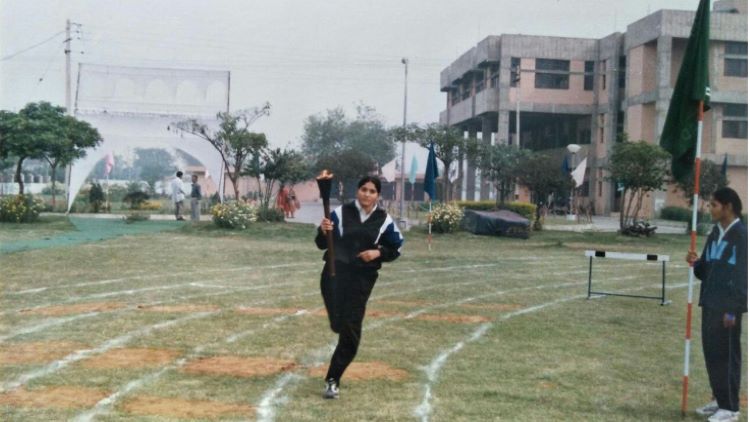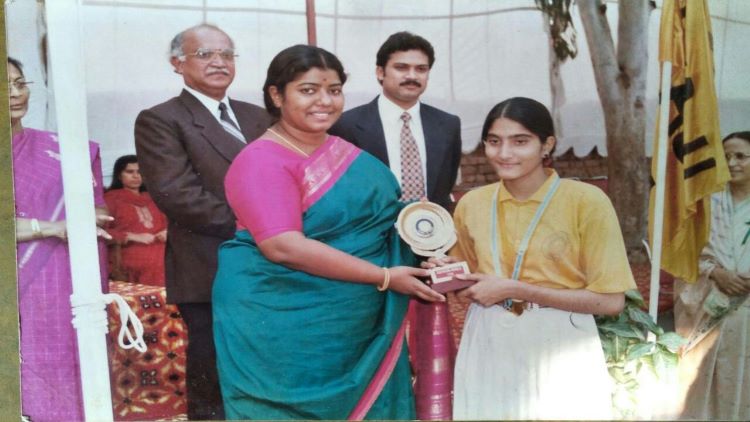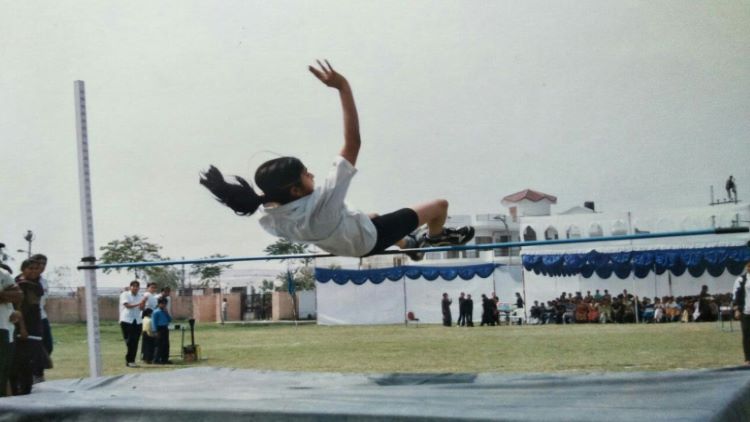
Rakesh Chaurasia/New Delhi
Rahila Bano was working in a software company when visited village Sathwadi in Mewat to attend the Urs of a Sufi.
“I met Shahnaz who came from a poor family and I quickly connected with her,” says Rahila going down the memory lane.
Shehnaz’s father was a religious teacher (Hafiz) who has no interest interested in his daughter getting an education. So, she had left school in the eighth standard. Shehnaz told Rahila her desire to go back to school and study. Her father is not allowing her.
Rahila tried to convince her parents. They were firm in their belief that if girls get educated, the parents have a problem of finding an educated groom for her and that also involves spending a lot of money to give her dowry. Given their financial condition it looked like an impossible idea.
“I explained to them that Islam in a very simple way (of life). I asked her father does he believe that marriages and couple are made in heaven and he said yes, it was true.”
First success
It took a few hours and a bit of arguing for Rahila to convince the man that allowing Shehnaz to go back to school is a good idea. “Today she is working as a primary teacher in Rajasthan. Shehnaz completed her BA and teachers training course to get the job,” says Rahila Banu, who works as a teacher of higher education in Mewat.
The Muslims of Mewat were late in catching up with girls’ education; a majority of the girls often left schools after fifth or eighth standard.
Rahila Bano has taken up the responsibility of making many of them resume their studies.

Rhila Bano getting an award in her college
What made Rahila Bano fight for the rights of Mewati girls?
Like Shehnaz, as a young girl, Rahil Bano had also faced social prejudice against girls’ education. It was her sheer grit and smartness that changed the course of her life.
Her father Asghar Hussain was an employee of the power corporation and mother Zubeena Khatoon had never gone to school. Rahila says t she was brought up in an ordinary peasant family of Pachnaka, Tehsil-Hathin, in a typical village environment. The family-owned cows and buffaloes and also had land to cultivate. She studied till the fifth standard in the local school.
Thereafter, the family shifted to Faridabad town as her father was posted there. As per the tradition, when Rahila was studying in ninth, her parents would discuss finding a groom to marry her.
In school, the girls talked about their dreams and career choices, while at home it was all about marriage.
She said, "The whole family, neighbours from our village, relatives, acquaintance had only one-line agenda. They would ask my Abbaji - Asgar Sahab, your girls is a grown-up; find a boy and marry her off."
This was disturbing for the young Rahila. As a resource to avoid getting married she started studying hard. She had an idea that if she scored well, her father would not allow the family to marry her off.
Her life changed
A neighbour Zakir Hussain guided her to join government polytechnic for women. Since it was located nearby Rahila’s parents agreed for her admission.
She received an engineering diploma in information technology.
Again, Rahila studied well so that she could study further. She also participated in sports and emerged as a good sportsperson.
"My name started appearing in the newspapers. One day a photograph clicked during a tournament appeared in the local newspaper. I was seen wearing shorts.

Rahila Bano participating in a sports meet
“Instead of congratulating him, friends and relatives told my father, You are not a bigwig to allow your young girl to wear whatever she likes,” she remembers of those days.
Her community leaders started pressurizing her parents for her marriage. They even threatened to boycott the family if Rahila continued to live a ‘free life.’
One day Ashok Arora, the principle of YWCA’s engineering college spotted her during a sports event. He spoke with her and advised her to do B. Tech degree from their engineering college.
Rahila Bano saw an opportunity to escape marriage. She realized her parents would not mind if she continued her studies in a Womens’ college. She gave up sports to please her parents.
Not an easy journey
At this stage, things were getting difficult for her. Due to growing social pressure, Rahil took up responsibilities at home and helped her mother in kitchen; oversaw studies of her siblings while quietly preparing for her final examination of the diploma course and entrance examination for the engineering college.
She had to score high to get into computer sciences since her diploma was in information technology.
Rahila crossed this hurdle too. Life was looking good for her; she could make choices.
During the campus recruitment in her college a software company offered her a job.
Later she joined as a lecturer in Al Falah engineering college at Dhouj. At the moment Rahila is pursuing her doctoral degree in Computer sciences. She is well versed in Hindi, Sanskrit, Urdu, Arabic and English.
Looking back at her journey, Rahila says she feels the pain of girls who are asked to give up studies to look after their siblings. “I have seen young girls being given the responsibility of milking the cattle, feeding them, fetching firewood and fodder from the forests, making cow dung cakes for fuel. I have seen little girls harvesting wheat in 45 degree Celsius heat. I have seen them cook food for the family.”
She has seen girls in her village having to live with the pain of menstruation and not being provided a sanitary pad. “They are supposed to use old clothes and reused the same next time. I have seen young girls being married off without their consent. I have seen the childhood of girls dying.”
She has lost the count of girls whom she rescued from these conditions and helped them study and think the number runs into thousands. She motivated and guided many girls to do a diploma in engineering from her polytechnic for women.
After two years of sustained work for girls’education, Rahila married a mining businessman Ameenudin alias Moen in 2008. They are parents of two.
Rahila Bano
Her journey of helping girls who drop out of school started when she was teaching in Polytechnic. Once during an interaction with teachers of a nearby village Kot, she realized the gravity of the dropout situation in Mewat.
I addressed a group of 50-60 parents. I spoke in the local language and most of them changed their mind.
Rahila says generally parents see their daughters as someone belonging to her future husband’s family. They feel the money spent on her education can be better utilized for her wedding. Others feel getting a suitable match for the educated daughters is not only difficult but also expensive. Others feel girls cannot be given so much freedom. Some mothers believe the school-going girl will not share the responsibilities of chores at home.
Rahila’s template for motivating the parents is unique. “I speak to them in the local dialect and use idioms that they understand. I quote Islam and emphasise that I am one of them. If I can reach a position through education why can’t their daughters do the same? She always covers her head as she feels it's important to make locals feel educated girls don't have to forego their culture and religion.
Education doesn’t spoil a woman; it makes her cultured and polished human and also empowers her to make decisions. She becomes aware of her rights and responsibilities and turns out to be a good teacher to her children.
“I tell them an educated woman runs her family well. I also ask them if they can send their daughters to jungles to fetch firewood and fodder and not care for their safety why can’t they send them to school?”
